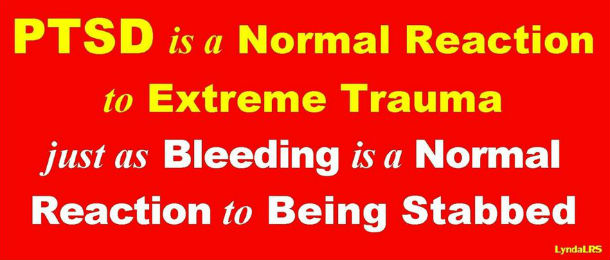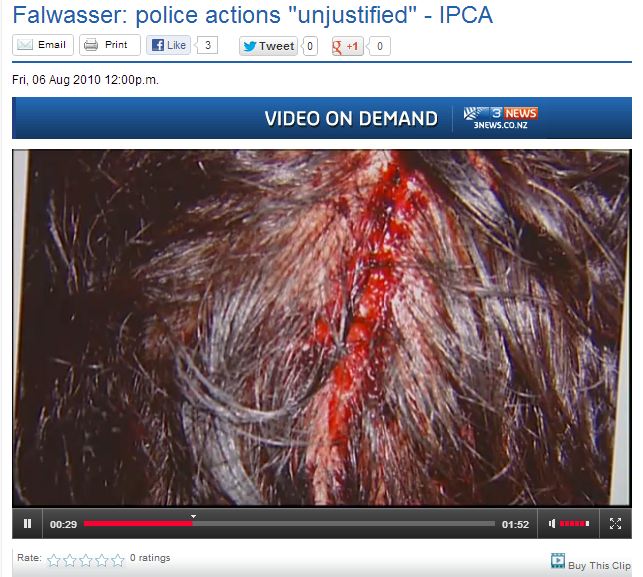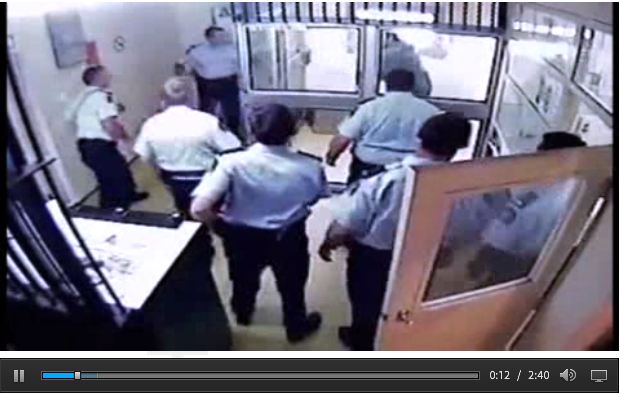For us here at Lauda Finem one of the many drivers behind this blog gets far to little if any attention in the mainstream media. That motivation is the fact that serious injuries, both physical and psychological, result from Police brutality, corruption and malfeasance.
In one of our earlier posts we featured an article by New Zealand’s Dr Brian Edwards, posted on his blog (www.brianedwardsmedia.co.nz,). In that piece Dr Edwards heavily criticized, perhaps even slammed (is that intemperate language Brian), police association president Greg O’Connor for his constant state of denial when it came to the behaviour of his membership; the men and women of the New Zealand police force.
To his credit, whilst we don’t always agree with him, Dr Edwards raised an issue that has never, to our knowledge at least, been raised by orthodox journalists in New Zealand before.
In fact whilst we were doing the research for this post we scoured the web for information, statistics and or stories related to the subject of police inflicted psychological injuries and found very little, if anything, in the way of genuine academic research. plenty of articles about the injuries cops faced; but absolutely nothing about that which they themselves had inflicted on others; why is that?
New Zealand’s Dr Edwards adroit observations, in the aforementioned post, of the Polices treatment of their prisoner Rewi Falwasser and his ongoing suffering resultant from the police brutality at least gave us some place to start;
Finally, Mr O’Connor says he hopes this will be ‘the final chapter’ for everyone involved. It will certainly not be the final chapter for Mr Falwasser, still suffering from post-traumatic stress disorder resulting from the incident.
This singular observation of the ongoing consequences for Mr Falwasser displayed a level of empathy and compassion that New Zealand journalists ordinarily lack when it comes to reporting on stories involving the victims of police corruption and violence.
In fact we have on record cases where the media have bent over backwards to conceal it. The only exception being a one off by Fairfax journalist Phil Kitchin in the case of the rape of Louise Nicholas, but unfortunately Mr Kitchin has also been guilty, in the past, of assisting police in the white-washing of abuse.
As an aside, it turns out Greg O’Connor’s desire for the IPCA’s report be the ‘the final chapter’ in the Falwasser case may also have been a pipe dream. It seems that one of the cops involved in that particular case of police brutality, Senior Constable Sean Ramkissoon, may have been fucked over by Police National Headquarters (undoubtedly an attempt to discredit a potential future witness).
As a result of the alleged conspiracy to dispose of ex Senior Constable Ramkissoon he has in turn come out swinging (in an employment court case ) alleging serious corruption by his police colleagues. We suspect that Ramkissoon’s allegations of police corruption are related to the Falwasser matter and the police’s handling of evidence and or perhaps the viva voce evidence given by the defendants and witnesses during the trial.
The reason for our suspicion is that the Commissioner himself, Peter Marshall, has now become involved in the latest round. Employment matters are not normally the domain of Commissioners, then of course there’s the fact that NZPA President Greg O’Connor, a man that you could normally set your glock by, has failed to perform his usual appearance in defense of Senior Constable Ramkissoon; who by the way, at the time of his premature departure from the police, must have been a New Zealand Police Association member.
The police assault on Mr Falwasser was nothing short of criminal and having seen the CCTV footage of the attack (below) its not at all surprising that he has developed post traumatic stress disorder (PTSD). Falwasser received the paltry sum of $30’000.00 compensation a figure that will go no were near covering the costs of ongoing treatment let alone compensating his loss of earnings and the psychological and physical health problems he will likely have to deal with through out the rest of his life.
But Falwasser is not alone. Whilst his case, deservedly so, received publicity their are hundreds of others that go unreported. Men and women that have been victims of police brutality, malfeasance and corruption and as a result, like Mr Falwasser, are now suffering the consequences; psychological injuries such as PTSD; many of whom will probably go un-diagnosed for many years to come…when its to late.
PTSD is one of those acronyms that is perhaps bandied about far to often and at the same time not at all well explained or for that matter understood by the public. Historically it has been associated with the military and soldiers returning from war zones. In its current DSMIV TR form the criteria for a diagnoses is relatively recent with the disorder being formally recognised in 1980. Prior to its inclusion in the DSMIV TR it’s had many names “shell-shock”, “soldier’s heart” and “battle fatigue” it is however now recognised that the disorder effects men, women and children of all cultures, and socioeconomic status.
When the term PTSD is used it is all to often incorrectly thought of as a mental illness. There is an important distinction to be made here, PTSD is in fact a psychological injury. In other words it is no different to a physical injury in that it’s an injury inflicted on the victim by another human being or group. Whilst there is evidence that suggests certain individuals may be genetically more susceptible to developing PTSD, it still requires some form of assault on the person by an aggressor/stressor.
The assault however does not need to be a physical assault in the literal context, the stressor/s can take a variety of forms:
PTSD is a set of reactions that can develop in people who have experienced or witnessed an event which threatened their life or safety, or that of others around them, and led to feelings of intense fear, helplessness or horror. It could be a car or other serious accident, physical or sexual assault, war or torture, or natural disasters such as bushfires or floods.
The stressor’s in the Falwasser case being the physical assault and prolonged psychological abuse by police. Its important to also point out that in the context of PTSD the assault on Falwasser was not limited to the physical assault, where he had first feared that he was going to die at the hands of his uniformed attackers. The assault continued and the injury inflicted was undoubtedly magnified with the police attempts to cover-up the offending, denying that it had even occurred and finally the fact that they were acquitted. All of these events, beyond the actual physical assault, may have been aggravating factors in Mr Falwasser developing PTSD.
PTSD and the more recently postulated complex post traumatic stress disorder (CPTSD) are both debilitating psychological injuries that have serious consequences for the victim, consequences that go well beyond the psychological. Those diagnosed with PTSD can often expect to have a significant reduction in their life span. This is not just because sufferers are extremely vulnerable to depression self-medicating with drugs and alcohol and self harm, A number of studies have concluded that those with PTSD have a significantly higher risk of developing life threatening physical ailments such as cancer, cardiovascular disease, gastrointestinal, and musculoskeletal disorders amongst a whole host of other serious health problems:
PTSD may promote poor health through a complex interaction between biological and psychological mechanisms. The National Center for PTSD and other laboratories around the world are studying these mechanisms. Current thinking is that the experience of trauma brings about neurochemical changes in the brain. These changes may have biological, as well as psychological and behavioral, effects on one’s health. For example, these neurochemical changes may create a vulnerability to hypertension and atherosclerotic heart disease that could explain in part the association with cardiovascular disorders. Research also shows that these neurochemical changes may relate to abnormalities in thyroid and other hormone functions, and to increased susceptibility to infections and immunologic disorders associated with PTSD.
Source: http://www.ptsd.va.gov/professional/pages/ptsd-physical-health.asp
The extent of the police abuse and resultant injuries such as PTSD does not stop with the likes of the Falwasser case, wherein the source of the harm was obvious.
When police and crown prosecutors take it upon themselves to falsely accuse and run sham prosecutions there are always serious ongoing consequences, such as PTSD, for their targeted victims even if they are ultimately acquitted.
In this unenviable situation the victim of the malfeasance, throughout the trial process, is left alone fearing for their safety, after all gaol is not a pleasant or for that matter safe place. In fact depending on what the miscreant cop decides to charge the victim with it could well be an exceptionally dangerous place.
The fact that the corrupt police officer is getting away with his or her abuse of power also leaves the victim in a psychologically vulnerable state not that dissimilar in fact to that of kidnap or hostage victims; powerless, in an almost surreal place, in shock and perhaps just as with any victim of a violent crime, in a state of denial….make no mistake, when rogue police officers and crown lawyers act in this corrupt way it is a crime of violence; the malicious intention was after all to inflict serious injury and harm.
Ask yourself:
What if this was happening to me right now, what if I had been falsely accused, what thoughts would be running through my head, what emotions would I be feeling?
The feeling of being trapped, anger, or perhaps even utter panic? Remember you’re innocent, you know are, you’ve done absolutely nothing wrong and yet this all powerful corrupt police officer has somehow managed to have you charged using his inherent credibility and office.
You may well be asking the questions; is this real, how can this be happening to me? Who can I turn to? Who can I trust? is it just a nightmare? It is indeed a nightmare scenario a scenario that plays out in New Zealand courts more often than most citizens could possibly bring themselves to imagine. Its been happening for decades. Police officers abusing their power and the inherent credibility that comes with the office to fuck over people they may simply have taken a dislike too, or for that matter, some poor unfortunate individual that the bent cops best mate might have had a personal gripe with.
New Zealand and its Police force are very good at sweeping the miscreant behaviour of rogue cops under the carpet. But the police and the country’s Crown Law office as statutory organisations, with clear obligations to protect the public, well they’re not so good at owning up to the often serious damage they cause to innocent members of the public they’re sworn to protect.
In the Falwasser case he was in a police lock-up, the reasons for his being in that cell are completely irrelevant. The police had a duty of care, more so because he had in fact been arrested, detained and was in their custody.
Mr Falwasser was indeed fortunate that the CCTV footage survived remaining intact, we have had cases brought to our attention where the CCTV footage mysteriously went missing or alternatively had ‘accidentally’ been damaged. In one of those cases, a malicious wrongful arrest and false imprisonment, the police discretely settled out of court.
For some reason the New Zealand media does not look in the right places when it comes to looking for evidence of that extraordinarily bad behaviour. One obvious area of interest are the police annual financial accounts and the figure that they might have had to payout in compensation for things such as false arrest etc. But this is of course just the tip of the iceberg, financial records can be played with and then there is the fact that, more often than not, confidentiality agreements are involved; at the police’s insistence.
PTSD and other anxiety disorders are the very real human cost of police abuse of power in whatever form it takes, but of course the government doesn’t like to acknowledge that fact, it is after all the long term cost that the victim alone, in most cases, and or their families/loved ones are left to bear.
Comprehensive information on PTSD can be found at: http://www.acpmh.unimelb.edu.au/
Note: If you have been the victim of police corruption/brutality and suspect that you may be suffering from PTSD then you should seek professional help immediately, the longer PTSD is left untreated the more likely it is that it will become a serious and chronic health issue.
The videos below have been heavily edited by the New Zealand authorities; and to think that those who live there believe its a genuine democracy, if this issue wasn’t so serious you’d almost have to laugh:
Bibliography
Risk of Accelerated Aging Seen in PTSD Patients with Childhood Trauma
Why PTSD is Larger than Mental Health
More evidence for PTSD, heart disease link
Book offers resources for PTSD sufferers
PTSD Unrecognized Risk Among Heart Attack Patients
Trauma, socioeconomic resources, and self-rated health in an ethnically diverse adult cohort
Related articles
- $2.4m paid out to settle police complaints (Fairfax)
- Ex-cop accuses senior officers of dishonesty (nzherald.co.nz)
- Dotcom: Kristy McDonald National Party cover-up queen appointed by police commissioner (laudafinem.wordpress.com)



3 Comments
Let’s remember, police use of excessive force, especially deadly force, corruption and other misconduct hurts everyone – including the police — in terms of lost cooperation, support and trust – which, in turn, diminishes their effectiveness. That’s the reality. Now what? To learn how to confront and prevent it, see, “Arrested Development: A Veteran Police Chief Sounds Off About Protest, Racism, Corruption and the Seven Steps Necessary to Improve Our Nation’s Police” (Amazon.com). And my blog at http://improvingpolice.wordpress.com.
If each and every cop involved in that incident were to be given the opportunity to deal with the same situation again individually and alone I am quite sure the outcome would have been totally different.
Cops are cowards as individuals and in the pack environment lose all self control.
I was involved in an incident many years ago where police were called and I was asked to accompany them but not at that stage arrested. En route to the main police station they stopped at a deserted police station out of the main city. It was clear to me that they intended giving me a going over. As I climbed from the back of the police car I was struck over the back of the head then as I stood up punched in the stomach with a PR@24 police baton. I grabbed the baton from the individual and held him so he could not attempt a further assault on me. There were two other cops in attendance one a dog handler who had his dog at his side. I let them know that if they intended carrying on with the assault they might as well continue where we were standing because I was going to meet force with force.
I was charged with assault on a constable and resisting arrest and eventually convicted of those charges.
What followed was actually more stressful. I had a devil of a time trying to convince my solicitor to appeal the conviction. The appeal was successful but then I was faced with convincing my solicitor while a retrial was not and end to the matter it was what I had wished for. I switched solicitors and the retrial was a success, I was found not guilty of assault and not guilty of resisting, because I was able to admit evidence that should have been admitted at the first trial but was not because my first solicitor could not clearly understand what he was looking at in a photo.
Three police were involved in the assault on me that night and four gave evidence at the retrial. The fourth being an expert in the use of the PR24.
The result is that I have an absolute mistrust of all police as a result of my trust in police being shattered during this episode. Not only did the cops involved lie their lies didn’t corroborate each others statements. And to top it all off the prosecuting sgt at the time of the retrial approached me at the beginning of the retrial and told me he was going to make me his personal project.
I am not sure if I suffer from PTSD but I do know that I wouldn’t cross the road to piss on a cop even if he was on fire.
I expect that Mr Falwasser once trusted that he would be treated fairly and reasonably by police prior to that incident with them.
lol. At least I am not the only one that expected to be treated fair – now I know better!